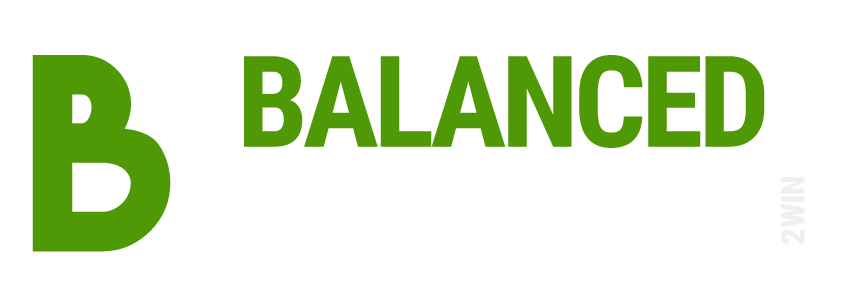
The Role of HR in Creating an Enterprise-Level Balanced Scorecard: 10 Key Questions
The enterprise-level Balanced Scorecard must be owned by the senior team – as they are ultimately responsible for the success or failure of the strategy. But creating the high-level Balanced Scorecard, and shaping a robust implementation plan, requires the input of various in-house experts. In this executive briefing, by posing 10 questions, we consider the role of HR at the outset of a scorecard program in ensuring that the ‘people related’ elements are adequately addressed.
HR leaders might ask themselves the following questions:
-
Is there a culture of teamwork at the highest management level?
A scorecard should be collectively built and owned by the senior team, which requires the inculcation of a strong teamwork ethic at the top table. Many companies find the scorecard creation process itself to be powerful for cementing a sense of teamwork at the highest level. HR can play a catalytic role in orchestrating teamwork within the senior team.
-
Do you believe that in the scorecard creation process the senior management team will pay as much attention to the learning and growth perspective as the other three? If not, how will you educate managers as to its equal standing?
Too often the learning and growth perspective is the weakest on the scorecard. The management team spends less time on this than the other three, often because they are uncomfortable with the ‘people’ objectives, measures, etc. Being able to describe the key role of the learning and growth perspective is crucial to long-term success with the scorecard.
Indeed, as Professor Kaplan often says: “Learning and growth is not the least important of the four perspectives, it is the foundation that supports the other three.” A key strategic skill for HR leaders is being able to demonstrate the causal relationships between success in the learning and growth perspective and success within the other three perspectives.
-
Most scorecard failures occur during the implementation phase and not the design stage. Does your management team have the appetite for leading what might be a two or three-year culture change effort?
The culture change component of a Balanced Scorecard implementation should not be underestimated. Working with a scorecard typically requires significant behavioral change at each level of the organization, not least at the top.
HR professionals should be well placed to facilitate this behavioral change process. But at the outset they should unearth the key cultural challenges that will be faced in scorecard rollout (such as resistance due to fear of measurement for instance) and prepare requisite interventions – such as education or training initiatives. Indeed, it is often sensible to place cultural objectives within a Strategy Map.
-
How will HR help to educate managers and lower-level employees that the scorecard is a framework to facilitate continuous improvement and not a tool with which to punish people?
This in itself can be a major cultural challenge. People do not like their performance to be seen as ‘poor’, so it is important to continually reinforce the point that the scorecard is not about punishment. HR should prepare education and, perhaps most importantly, behavioral change initiatives to create a culture focused on performance and learning rather than blame and punishment.
-
How will you deploy communication systems as part of the scorecard implementation process? How will HR handle this process?
Communication is a critical element of scorecard rollout. Employees must know what the scorecard is, why it is being used and be kept up to date with progress against the strategy, as described through the scorecard. HR can play a useful role, perhaps through its internal communication function, in creating a strategic communications unit that focuses on delivering messages around the strategy and the Balanced Scorecard.
-
Do you intend to change your incentive-compensation to support the Balanced Scorecard? If so, when do you expect to do this and at what levels will this effect – senior management, all management levels or the whole workforce? How will HR handle this process?
Most scorecard adopters eventually attempt to align incentive-compensation to scorecard results as it is seen as a powerful way to change behavior.
Typically, they do so after about a year or so of using the scorecard, by which time they are reasonably confident in the robustness of their strategic hypothesis. HR has a crucial role to play in shaping robust incentive compensation plans. This is probably the most challenging of all HR’s roles regarding the Balanced Scorecard as there is still a paucity of good examples of aligning incentive compensations to the strategy via the Balanced Scorecard.
-
Similarly, do you intend to align performance appraisals with the Balanced Scorecard? How will HR handle this process?
This is also a key for inculcating the right behaviors. But employees must be appraised against objectives they can personally influence. Senior managers, therefore, may be appraised against objectives within all four perspectives, whereas a contact center employee, as one example, might be appraised mainly against customer-facing objectives. Shaping a performance management process that is strategically rather than tactically focused is a key task for HR.
-
How will the Balanced Scorecard impact training delivery? How will HR handle this process?
The scorecard should highlight strategic ‘talent’ gaps, and this offers HR an opportunity to deliver tangible benefits to the company by ensuring training delivery is strategically focused. As well as adding value, HR can also better direct training dollars through ensuring a strategic link.
-
How will the Balanced Scorecard impact recruitment? How will HR handle this process?
By identifying strategically critical competencies, it becomes possible to create an assessment tool to use in the recruitment process. HR should be ensuring that through recruitment efforts they are filling delineable present and future strategic talent gaps.
-
How well does HR understand the strategy of the enterprise?
In the final analysis, to deliver value to their organizations HR must fully understand business strategy. Without that cognizance none of the above is possible. When HR has this knowledge it then becomes possible to create a Strategy Map and Balanced Scorecard for the HR function itself, and even for devolved departments. A well-thought-out HR scorecard will show how the function delivers value to the enterprise through effectiveness and efficiency themes. It also shows how HR is developing the talent within the function to deliver the people dimension of the enterprise-level strategy.

